Discovering Hangover-Free Wine: A New Winemaking Era
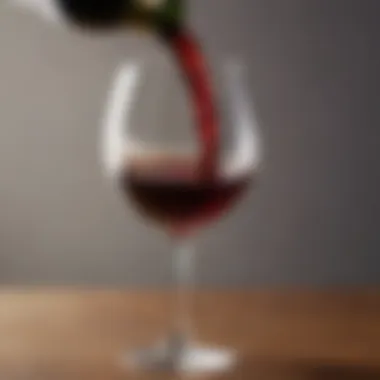
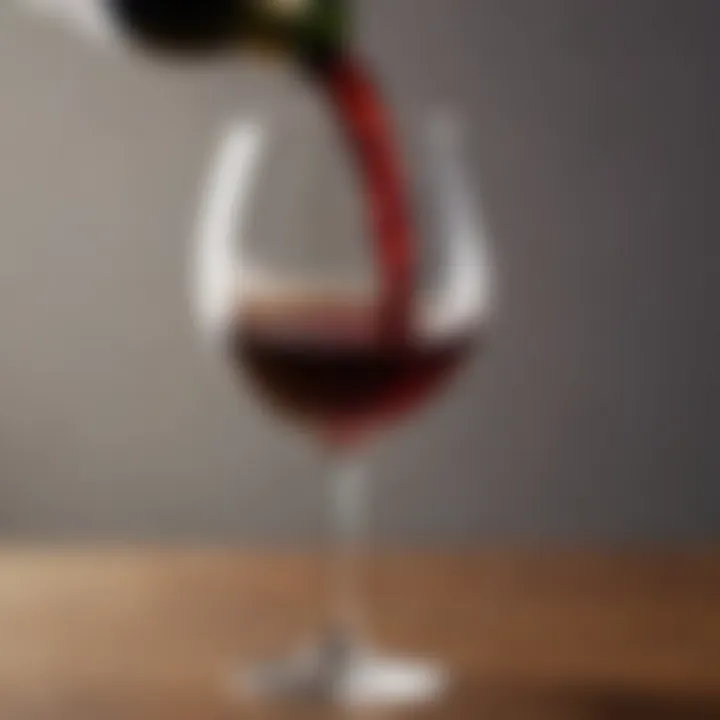
Intro
In an age where health consciousness permeates our lifestyles, the winemaking industry is witnessing a fascinating evolution. The rise of hangover-free wines is not just a trend; it represents a meaningful shift in how consumers perceive alcohol and its impact on well-being. These innovative wines are crafted using advanced techniques that may reduce or eliminate the unwanted aftereffects typically associated with traditional wines, reshaping social drinking experiences for many.
As people grow more aware of what they consume, the appeal of hangover-free options becomes increasingly clear. This shift reflects a broader cultural movement towards healthier alternatives in food and drink. With that backdrop, let’s delve into the intricacies of hangover-free wine production, the key players in the industry, and the science behind these remarkable innovations.
Understanding the delicate balance between enjoyment and health is crucial, as more consumers seek out solutions that allow them to savor their favorite beverages without the accompanying pain.
As we explore the flavors, ingredients, and effects of this new breed of wine, we'll uncover how it's poised to redefine our relationship with alcohol.
Stay with us as we embark on this journey into the heart of hangover-free wine, uncovering its potential to transform social gatherings and our personal routines.
Understanding Hangover-Free Wine
The notion of hangover-free wine is gaining traction among wine enthusiasts and casual drinkers alike. With increasing awareness surrounding health and wellness, this topic grows in significance every day. The allure of sipping a glass of wine without the impending doom of a hangover resonates well with many people. After all, indulging in a delightful vintage should not come at the cost of feeling miserable the next day.
At its core, understanding hangover-free wine encompasses several elements: its definition, the scientific principles behind hangovers, and the specific characteristics that differentiate these wines from traditional options. This exploration provides a framework for appreciating how innovation in winemaking can lead to healthier drinking experiences.
Defining Hangover-Free Wine
Hangover-free wine is not just a catchphrase but a concept that represents a shift towards wines which, through various modifications in production, aim to reduce or eliminate the adverse effects typically associated with alcohol consumption. These wines are designed to minimize the compounds that contribute to hangovers, such as congeners, which exacerbate headaches and other ailments after a night of merrymaking.
For many, the idea might evoke skepticism. Can wine truly be made hangover-free? The answer lies in advancements in technology and a deeper understanding of the fermentation process. By tweaking these processes and ingredients, some winemakers have managed to create brands and varieties that promise a more pleasant drinking experience.
The Science Behind Hangovers
To grasp how hangover-free wines come into play, it's essential to first understand what a hangover is. Hangovers typically manifest the day after consuming alcohol, marked by a nasty combination of symptoms like headaches, nausea, fatigue, and irritability.
The primary culprits behind hangovers are the byproducts of alcohol metabolism. Ethanol, the active component in alcoholic beverages, is processed by the body into acetaldehyde—a compound that can cause significant discomfort and distress in high concentrations. Other factors that contribute to the hangover experience include dehydration, electrolyte imbalances, and the aforementioned congeners, which are found in varying levels across different types of wines.
"Hangovers can vary in severity based on multiple factors, including the type of wine consumed, the volume, and the individual's metabolism. In this light, the innovation of hangover-free wine becomes all the more compelling."
What Makes Wine Hangover-Free?
So, what precisely contributes to a wine being labeled as hangover-free? A few key factors stand out:
- Lower Alcohol Content: Many hangover-free wines boast reduced alcohol levels, which naturally diminishes the potential for hangover symptoms. Wines with a lower proof can still deliver a delightful taste without the pitfalls of high-octane options.
- Reduced Congeners: Winemakers are employing methods to minimize congeners, which are naturally present in darker wines. Transparent or light-colored varietals, often processed more selectively, lead to fewer of these troublesome compounds entering the final bottle.
- Quality Ingredients: The shift toward organic or biodynamic grapes and more natural vinification practices means fewer additives and preservatives. This can lead to a cleaner profile and, by extension, a less harsh after-effect on the body.
As consumers increasingly seek better-for-you options, understanding what defines hangover-free wine allows for informed decisions—empowering individuals to enjoy wine without the fear of regrettable morning afters.
The Production Process
The production of hangover-free wine is a critical area to explore, revealing the innovative techniques and careful selections that streamline this new era of winemaking. Understanding how these beverages are crafted not only showcases the ingenuity behind them, but also emphasizes the importance of the ingredients and methods involved in making these healthier options. In the face of rising health-conscious consumers, the production process needs to ensure that the resulting wine is not just enjoyable, but also supports well-being without sacrificing taste or quality.
Innovative Winemaking Techniques
When it comes to crafting hangover-free wine, growers and producers have turned to innovative techniques that twist the traditional processes we associate with winemaking. They focus on reducing certain elements commonly linked to hangovers, such as high alcohol content and congeners, while retaining the characteristic taste of wine.
One groundbreaking method entails altering the fermentation process—where sugars from the grapes get converted into alcohol. Winemakers have experimented with shorter fermentation times, which reduces the production of certain by-products that contribute to hangovers.
Additionally, advanced filtration systems have emerged, helping to clarify the wine without stripping its rich flavor. Various producers now utilize cross-flow filtration, which allows them to separate impurities while keeping the wine's essence intact. As a result, these techniques are setting a new standard within the industry, encouraging more sustainable and health-focused production.
Selecting Ingredients for Optimal Health
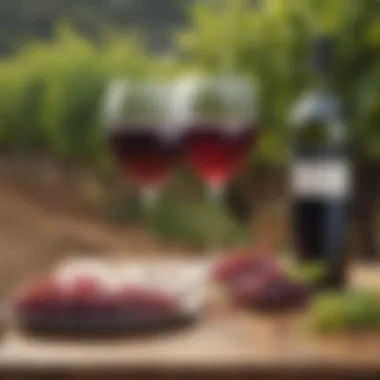
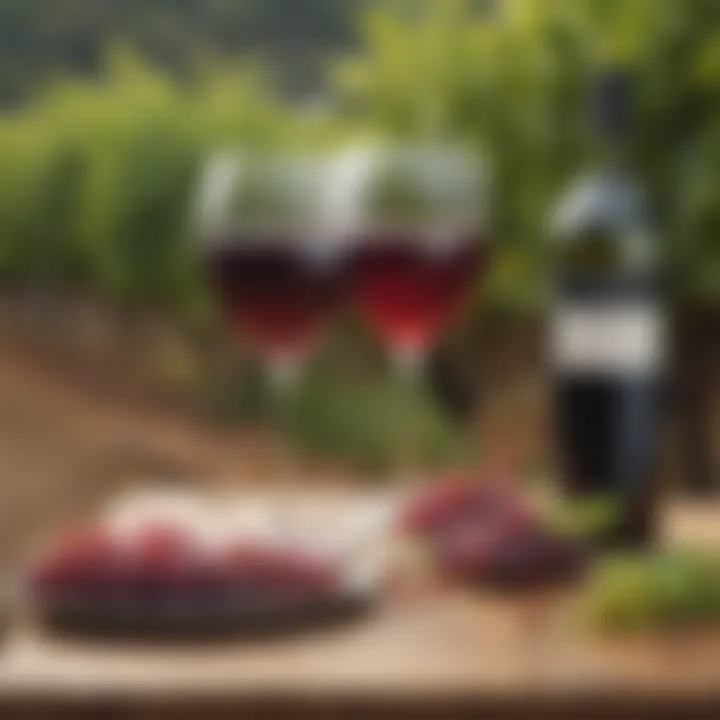
The selection of ingredients plays a significant role in the health factors associated with wine. Grapes are inherently healthy fruits, packed with antioxidants. Yet, the specific varieties and how they are grown can significantly impact the final product's benefits. For instance, some vineyards prioritize organic and biodynamic practices that avoid chemical fertilizers and pesticides. This allows the grapes to flourish in a natural environment, promoting their health benefits without unwanted contaminants.
Producers are also leaning towards less common grape varieties that naturally have lower sugar and alcohol levels. Incorporating these varieties helps to create a wine that is not just hangover-free but has a layered flavor profile that appealingly differs from typical options on the market. Furthermore, noteworthy additives such as certain herbs or spices can infuse additional antioxidant properties while elevating the taste experience, making the selection of ingredients a fundamental aspect of the production.
Fermentation and its Role
Fermentation is the beating heart of winemaking, and its nuances directly influence the characteristics of hangover-free wine. Traditionally, this process fully transforms sugar into alcohol, but with hangover-free wines, there’s room for science to step in.
Winemakers might use specific strains of yeast that produce fewer congeners—a byproduct of fermentation commonly associated with hangovers. These yeasts can impart a cleaner finish while retaining authentic wine flavors.
Moreover, temperature control during fermentation is crucial. Cooler temperatures yield slow fermentation, which can further reduce the production of unwanted compounds. This delicate manipulation showcases the attention to detail that contemporary winemakers apply to every step of the process, ensuring that the end product is not only flavorful but also easier on the body.
"The blend of traditional and cutting-edge techniques during production allows for wines that embrace both the old world and the new paradigm of health-conscious consumption."
The art of producing hangover-free wine is a complex tapestry woven from a variety of innovative techniques, consciously chosen ingredients, and mastery of fermentation. Each element plays an essential role in crafting wines that reflect a new era of health-conscious choices without compromising taste or richness.
Health Benefits of Hangover-Free Wine
The emergence of hangover-free wine opens up intriguing discussions about its health benefits. This section sheds light on the key advantages of opting for these innovative options. By diving into lower alcohol content, reduced congeners, and nutritional elements, we illustrate how these wines can lead to a more pleasurable, healthier drinking experience without the dreaded aftereffects.
Lower Alcohol Content
One of the standout features of hangover-free wines is their lower alcohol content. Traditional wines usually carry a higher percentage of alcohol, which is often linked to hangover symptoms. Lowering this percentage does not dilute the complexity or flavor of the wine. In fact, many producers focus on enhancing the taste through careful selection of grapes and fermentation processes.
The benefits of lower alcohol content include:
- Reduced risk of dehydration: Alcohol contributes to fluid loss, often a key factor in hangover severity.
- Less impact on liver health: Lower alcohol intake generally promotes better overall liver function.
- Easier social interaction: With less alcohol, individuals can engage socially without feeling overly intoxicated.
Reduced Congeners and Their Impact
Congeners are chemical byproducts of fermentation found in alcoholic beverages. They are known to contribute significantly to hangovers. Hangover-free wines focus on minimizing these congeners.
The key advantages include:
- Soften the aftereffects: With less congeners in the mix, the chances of experiencing headaches, nausea, and fatigue reduce.
- Improved taste: Without the harshness congeners can impart, wines can be smoother and more palatable.
- Enhanced health benefits: Studies suggest that lower congeners can decrease oxidative stress in the body, which is linked to various health issues.
Nutritional Elements in Hangover-Free Wines
Hangover-free wines are often made with an eye towards nutrition as well. Many producers are incorporating elements that enhance the positive aspects of wine enjoyment.
Some highlighted nutritional elements may include:
- Antioxidants: Rich in compounds like resveratrol, these wines can contribute positively to heart health.
- Fewer sulfites: Often, traditional wines contain higher levels of sulfites, which can trigger reactions in sensitive individuals.
- Lower sugar levels: Balanced sugar content can lead to a better health profile.
"Embracing the benefits of hangover-free wine not only enhances your experience but aligns with a more conscious approach to alcohol consumption."
The shift to hangover-free wine signals a growing interest in health and wellness without sacrificing enjoyment. By being more mindful about what we drink, there’s potential for a surprising transformation in social drinking norms.
Popular Brands and Varieties
The world of hangover-free wine is as diverse as it is intriguing. Entering this new era of winemaking, several brands are stepping into the limelight, revealing not only unique flavors but also offering a healthier alternative to traditional wines. Popular brands and varieties are not just a trend; they embody a significant shift towards conscious consumption and a new way of enjoying celebrated beverages while keeping well-being in mind.
Leading Hangover-Free Wine Producers
A handful of producers are at the forefront of the hangover-free wine movement, employing innovative techniques and a focus on quality ingredients. Vintner's Choice, for instance, specializes in low-congener wines by meticulously selecting grapes known for their purity. Their process emphasizes a cleaner fermentation, fundamentally changing interactions with compounds that typically contribute to hangover symptoms.
Another notable player is Green Sip Wines, which harnesses sustainable viticulture practices. Their wines not only promise a reduced risk of hangovers but also appeal to eco-conscious consumers looking to make sustainable choices while indulging.
At the same time, No Hangover Winery is generating buzz with its unique blends, featuring exotic fruits like pomegranates and elderberries, bringing a twist to traditional wine profiles without compromising the experience.


Regional Variations and Offerings
The hangover-free wine phenomenon is not monolithic; it boasts a tapestry of regional variations. In the rolling hills of California, a movement of natural winemakers has emerged, creating hangover-free options that highlight the terroir—while embracing minimal intervention approaches. Here, you might find wines infused with local herbs, offering both taste and health benefits, bringing a distinct regional flair.
Meanwhile, European producers, particularly in countries like Spain and Italy, have begun experimenting with traditional grape varieties. Tempranillo and Sangiovese are being redesigned into hangover-free options, combining old-world charm with modern science. The result is not only an innovative wine but a compelling story behind each bottle.
Consumer Choices and Favorites
As awareness grows, so does consumer interest in hangover-free options. Many have taken to social media and platforms like Reddit to share their experiences and recommendations. The consensus highlights a few favorites that consistently come up:
- Rosé with Reduced Alcohol: This refreshing choice is favored for its lightness and versatility.
- Sparkling Wines: Brands like Effervescent Elixirs are gaining popularity for their celebratory fizz without the post-party headache.
- Unique red blends with antioxidant-rich ingredients, which are often cited for their health benefits without the downside of typical red wines.
Consumer loyalty is gathering around these brands not only for their taste but also for the promise of an enjoyable experience sans the dreaded aftermath of traditional consumption. The collective nod to hangover-free wines reflects a broader cultural movement towards mindful drinking, encouraging individuals to celebrate without the price tag of a hangover.
"In a world where every sip matters, why not choose a wine that celebrates both flavor and well-being?"
The rise of hangover-free wines not only opens new doors for connoisseurs but also marks a substantial departure from conventional drinking habits. With innovative producers, varied regional offerings, and an enthusiastic consumer base, the landscape of wine is being reshaped, inviting more people to partake in the joy of wine tasting without the associated regrets.
Cultural Implications
The exploration of hangover-free wine goes beyond mere taste and health benefits; it addresses the very fabric of social interactions and cultural narratives surrounding drinking. As societies evolve, so does the relationship with alcohol. This section sheds light on changing drinking norms, healthier consumption habits, and the holistic experience of savoring quality wine without the aftermath of regret.
Changing Social Drinking Norms
Historically, alcohol has been intertwined with traditions, celebrations, and even rites of passage. Yet, as awareness grows regarding health and wellness, a notable shift in social drinking practices emerges. The younger generation is increasingly gravitating toward experiences that prioritize well-being. Hangover-free wines cater to this need, appealing not only through taste but by enhancing social interactions without the fear of unpleasant aftereffects.
- Reduced stigma: People feel less pressured to overindulge when hangover-free options are present around.
- Inclusivity: It allows non-drinkers and those wary of conventional alcohol to join in celebrations without feeling isolated.
"We want to toast, not suffer. Hangover-free wines allow us to enjoy the moment without the headache the following day."
The Shift Towards Healthier Alcohol Consumption
In recent years, we've witnessed an undeniable tilt in consumer preferences towards healthier alternatives. This transition isn’t merely a passing trend; it's a cultural movement fueled by a heightened awareness of overall health. Hangover-free wines provide a bridge between enjoyment and health consciousness. Some key aspects include:
- Mindful Drinking: People now prefer wines that fit into a balanced lifestyle, where moderation is key, and pleasure can be derived without harmful effects.
- Nutritional Awareness: With a growing emphasis on nutrition, consumers now seek wines that are lower in sugar and congeners—elements that contribute to hangovers. This awareness sparks curiosity about the quality of ingredients and production processes.
As hangover-free wines gain traction, the wine industry may find itself at the forefront of a significant cultural REALignment.
The Experience of Drinking Hangover-Free Wine
One of the most compelling aspects of hangover-free wine is the actual experience it offers the drinker. Unlike traditional wines, the anticipation of enjoying a glass without the toll of the next day's hangover creates an almost euphoric atmosphere. The shift in sentiment can dramatically alter social interactions.
Imagine sipping a chilled glass of hangover-free Sauvignon Blanc during a sunset gathering with friends. There is nothing in your mind buzzing about potential regrets; instead, you get to live fully in the moment. You relish the flavors and engage in conversations without the looming shadow of impending headaches or fatigue.
- Quality over Quantity: Drinkers are likely to savor their beverages more, focusing on the actual flavors and aromas rather than just chugging for the buzz.
- Connection: This mindful approach fosters deeper conversations and enriches relationships, enhancing the overall experience of socializing.
In summary, the cultural implications of hangover-free wine signal a significant transformation in how we perceive drinking. As health-focused lifestyles become ever more prominent, the acceptance and integration of hangover-free wines may very well redefine social norms and rituals surrounding alcohol consumption.
Challenges in the Industry
Navigating the landscape of hangover-free wine presents an array of challenges, some of which extend beyond mere production techniques. This section elucidates the multifaceted nature of these challenges in the industry, revealing not just the obstacles faced but also the implications for producers, consumers, and the market at large.
Perception and Acceptance
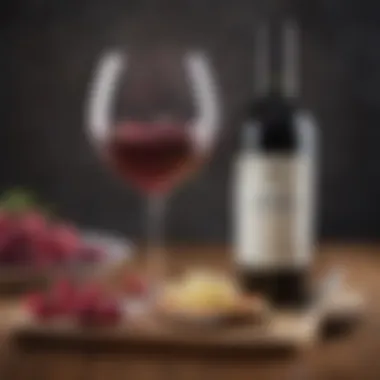
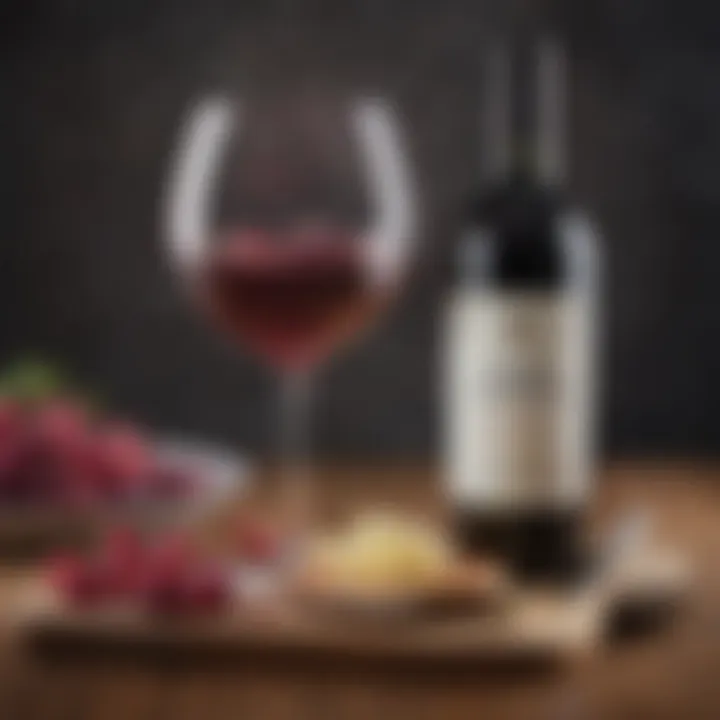
The acceptance of hangover-free wine hinges significantly on consumer perceptions. Wine drinkers typically enjoy the tradition and ritual of wine, often associating it with indulgence and celebration. However, introducing a product that diverges from this norm could raise skepticism. Many consumers might question if a wine devoid of hangover potential can deliver the same flavor profile and experience that they cherish.
- Historical Bias: There’s a long-standing belief that high quality equates to higher alcohol content. Changing this mindset requires not only product development but also a robust marketing strategy that emphasizes the benefits and quality of hangover-free options.
- Tasting Experiences: Many wineries and producers are conducting tastings that focus exclusively on hangover-free variants. This not only enhances consumer awareness but also offers a direct experience to dispel myths regarding flavor and quality, thereby slowly altering perceptions.
Market Competition and Trends
The rise of hangover-free wines is entering an already saturated market. With countless options available, both traditional and innovative, competition is fierce. This segment offers challenges related to positioning within the marketplace.
- Emerging Brands: New producers emerge regularly, each bringing their unique takes on the hangover-free concept. Collaboratively, these brands push the envelope but also create confusion in the minds of consumers regarding what distinguishes one product from another.
- Consumer Education: Keeping consumers informed about the benefits of choosing hangover-free wines over traditional options is critical. Educational campaigns can help consumers make more informed choices, guiding them towards healthier drinking habits without sacrificing enjoyment. This involves highlighting aspects like nutritional values, flavors, and low alcohol content.
Regulatory Hurdles in Production
Creating hangover-free wine doesn’t just involve innovative production techniques; it’s also governed by local and international regulations that can vary widely. Compliance becomes key for these emerging wines striving to carve out their niche.
- Labeling Regulations: Proper labeling is essential in communicating the attributes of hangover-free wines. Regulations may limit how producers market these products, making it difficult to highlight the benefits clearly.
- Alcohol Content Compliance: Adhering to standards for alcohol content without sacrificing flavor requires expertise. Regulatory bodies often scrutinize these products, particularly since the term "hangover-free" can be perceived as a claim on health or safety.
In summary, overcoming the perception challenges, navigating market competitors, and adhering to regulatory stipulations are vital in fostering the acceptance and growth of hangover-free wine. Like any new advent, patience and persistence in education, marketing, and production will play crucial roles in solidifying its standing in the contemporary marketplace.
Future of Hangover-Free Wine
The landscape of winemaking is on the cusp of a transformative shift, primarily due to the rising curiosity and demand for hangover-free wine. As awareness grows about the negative effects of traditional alcoholic beverages, consumers are actively seeking alternatives that offer the pleasure of vino without the inevitable repercussions. This section dives into the not only the importance of hangover-free wine but also the potential it has to shape the future of the global wine industry.
Technological Advancements in Winemaking
In the age of innovation, winemakers are embracing cutting-edge technologies to refine their processes, making healthier wines increasingly accessible. Techniques like reverse osmosis and advanced fermentation methods enable producers to reduce alcohol and congeners while preserving the distinct flavors of their wines. For instance, scientists have developed bioengineering techniques to create yeasts that produce lower levels of certain byproducts during fermentation, contributing to those hangover-free attributes that many seek.
Moreover, the integration of data analysis tools is playing a pivotal role in optimizing the winemaking process. Adjustments based on real-time feedback help in maintaining consistent quality, making it easier to deliver the desired taste while minimizing the adverse effects associated with alcohol consumption. As these technologies proliferate, expect to see a burst of new varieties emerging, appealing to a wider audience eager for health-conscious options.
Consumer Trends and Predictions
The appetite for hangover-free wine reflects a broader cultural shift towards health and wellness. Taste preferences are evolving, with more consumers gravitating towards products that align with their lifestyle choices. A survey might reveal that millennials, in particular, are more inclined to opt for lower-alcohol options that promise a guilt-free experience. The surge in interest for non-alcoholic beverages complements this trend, fueling innovations in the hangover-free sector.
As we look ahead, the market for hangover-free wines is expected to expand dramatically. Predictions suggest it will not be just a passing fancy but rather a sustainable movement. With an increasing number of wellness influencers and health enthusiasts promoting the benefits, new brands will likely emerge, filling the gaps in this burgeoning market.
Overall Industry Impact
As the demand for hangover-free wines grows, the implications for the wine industry could be profound. Traditional producers may need to adapt or risk being left behind in a rapidly evolving marketplace. While the classics will always have their place, wineries could benefit from diversifying their offerings to include these innovative products. Failure to acknowledge this shift might result in losing a segment of the consumer base.
Furthermore, the sustainability aspect cannot be overlooked. Producers focusing on healthier wine options often champion organic and biodynamic practices, appealing to a new generation of environmentally conscious drinkers. This shift could foster positive changes in the winemaking industry overall, pushing for higher standards in production and better practices in sustainability.
"Health isn’t just a trend; it’s a lifestyle. The wine we drink should reflect the values we hold dear."
The growing trend towards hangover-free wine signifies a new chapter in the wine narrative, where quality comes hand-in-hand with health. As technology advances and consumer preferences evolve, hangover-free wines might command a pivotal role in reimagining what is possible in winemaking.
Closure
The topic of hangover-free wine marks a significant turning point in the wine industry. This narrative has evolved from a mere curiosity to a full-fledged movement fueled by changing consumer preferences and blossoming health trends. The demand for options that minimize the unpleasant aftermath of indulgence is rising, aligning with a broader cultural shift toward more mindful consumption.
As previously discussed in this article, the innovative production methods—ranging from ingredient selection to advanced fermentation techniques—play a pivotal role in crafting these unique wines. These practices not only aim to maintain the enjoyable aspects of wine without the typical side effects but also offer health benefits that appeal to today’s conscientious drinkers. The lower alcohol content and reduced congeners create an environment where consumers can enjoy wine without fearing what comes the next day.
The movement toward hangover-free options is more than just a trend; it reflects an evolving understanding of social drinking. As people begin to prioritize their well-being, the acceptance of healthier alternatives is gaining momentum.
In essence, hangover-free wine is reshaping social interactions, making gatherings and celebrations more pleasant experiences. By understanding these wines better, enthusiasts can engage in their passions without the worry of next-day repercussions—making their indulgence not only delicious but also sustainable.
In summary, the rise of hangover-free wine could transform not just individual drinking habits but the entire social fabric surrounding alcohol consumption.
Summarizing Key Points
- Definition and Science: Understanding what makes wine hangover-free involves a look at the underlying science of hangovers and why certain wines can be enjoyed with fewer negative effects.
- Production Techniques: Innovative techniques clearly differentiate hangover-free wines from their traditional counterparts, with attention to ingredient quality and fermentation processes being paramount.
- Health Benefits: Reduced alcohol content and fewer congeners contribute to overall health, marking significant benefits over conventional wines.
- Cultural Shift: This discussion highlights an important change in social norms, where health and enjoyment can coexist harmoniously.
- Future Implications: The future of hangover-free wine holds promise, with consumer trends pushing for more offerings and innovations in the industry.







